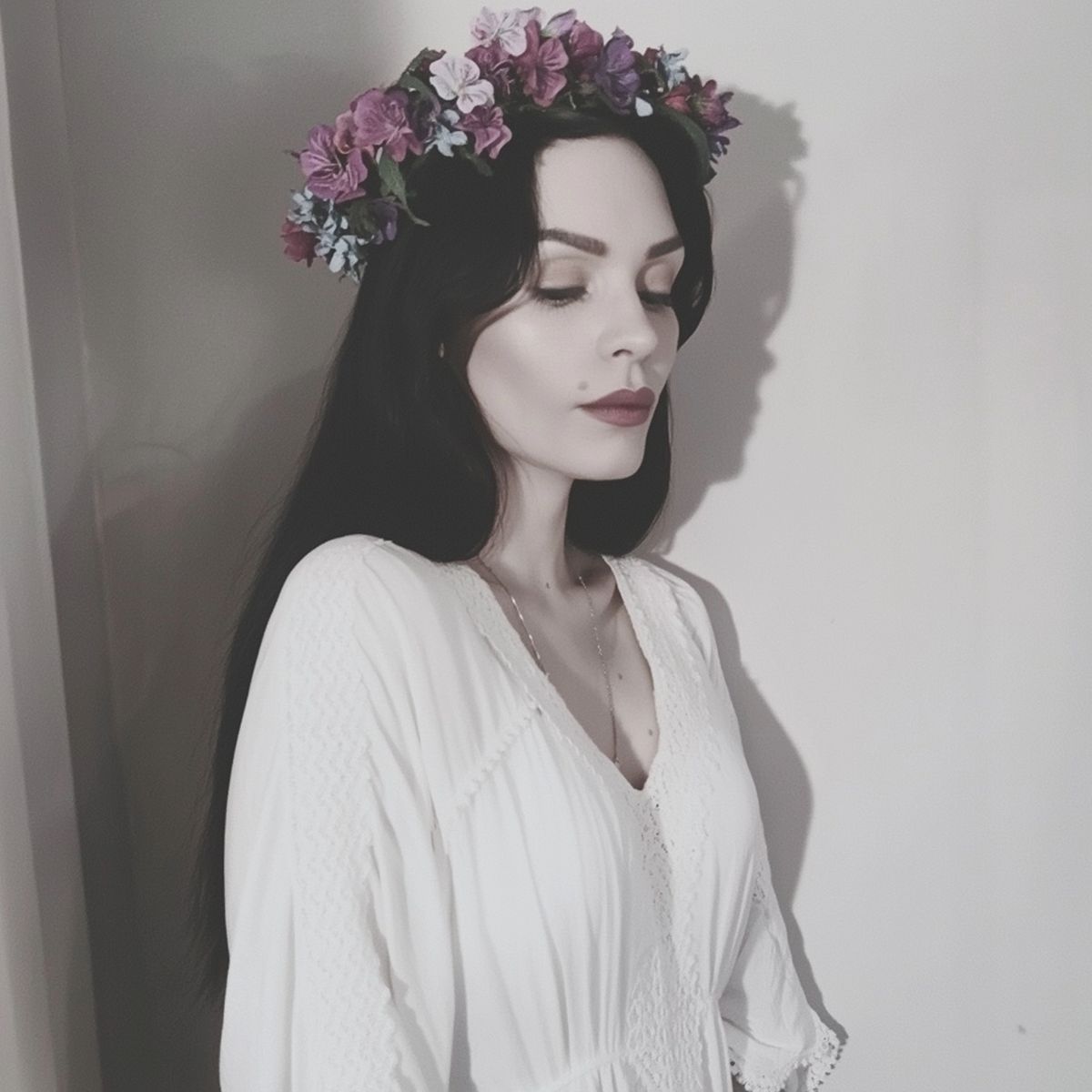
Venus-Pluto Aspects
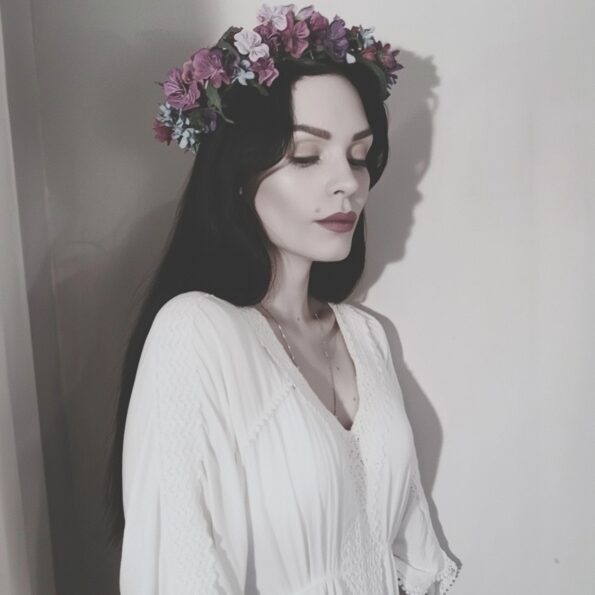 Venus is the planet of love, beauty, and the finer, parts of existence. Her influence in astrology is magnetizing, sensual, and often entirely irresistible. She isn’t concerned with what must be done, but with what feels right, pleasing, and true to the heart’s longing. To understand Venus in the birth chart is to understand the unique frequency at which an individual vibrates with pleasure. It tells us what makes a person feel most loved, what sorts of experiences they find beautiful, and how they wish to both give and receive affection. But Venus doesn’t simply describe who you might fall in love with; it dives deeper, into how you love. Do you crave closeness, or do you prefer love that breathes and blooms in open fields? Do you express devotion in dramatic ways, or through quiet consistency. Venus governs the aesthetic lens through which we view the world. Through her, we are drawn to certain styles, colors, music, and art. She is the inner curator of taste, a reflection of what makes us feel whole. And in relationships, she doesn’t only reveal attraction, but compatibility—how we merge our lives with another without losing the integrity of our own desires. When Venus is strong and well-aspected, we find it easier to receive love, to feel beautiful, to trust in the gentle flow of giving and receiving. When she is challenged or hidden, we may struggle with self-worth, push away tenderness, or cling to hollow ideals of beauty, chasing validation rather than true value.
Venus is the planet of love, beauty, and the finer, parts of existence. Her influence in astrology is magnetizing, sensual, and often entirely irresistible. She isn’t concerned with what must be done, but with what feels right, pleasing, and true to the heart’s longing. To understand Venus in the birth chart is to understand the unique frequency at which an individual vibrates with pleasure. It tells us what makes a person feel most loved, what sorts of experiences they find beautiful, and how they wish to both give and receive affection. But Venus doesn’t simply describe who you might fall in love with; it dives deeper, into how you love. Do you crave closeness, or do you prefer love that breathes and blooms in open fields? Do you express devotion in dramatic ways, or through quiet consistency. Venus governs the aesthetic lens through which we view the world. Through her, we are drawn to certain styles, colors, music, and art. She is the inner curator of taste, a reflection of what makes us feel whole. And in relationships, she doesn’t only reveal attraction, but compatibility—how we merge our lives with another without losing the integrity of our own desires. When Venus is strong and well-aspected, we find it easier to receive love, to feel beautiful, to trust in the gentle flow of giving and receiving. When she is challenged or hidden, we may struggle with self-worth, push away tenderness, or cling to hollow ideals of beauty, chasing validation rather than true value.
Venus and Pluto is a tale of shadow, roses and roots. To understand the interplay between these two planetary forces is to understand the dual nature of love itself. Venus shows us what we desire on the surface—the qualities that charm us, the aesthetics that please us, the kind of touch that reassures. She is the first flutter of infatuation, the warmth of being admired. But Pluto doesn’t deal in flirtation. Pluto wants to know what you’re hiding behind your smile.
When we study Venus in the birth chart, we begin to see the patterns—why we’re drawn to particular faces. It’s like noticing the recurring theme in all the songs you’ve ever loved. Venus maps our affections, our romantic preferences, and what we believe love should feel like. But Pluto says, “What does it really feel like when you surrender?” Pluto’s influence is never casual. It doesn’t play at love—it demands emotional reckoning. Relationships touched by Pluto are rarely simple. They drag us into the depths, asking us to confront our most primal fears and desires: fear of abandonment, fear of engulfment, fear of being seen fully, and the even greater fear of not being seen at all. It is under Pluto’s watchful eye that we unravel, burn, and emerge reborn—or not at all.
While Venus may bring pleasure, Pluto brings power. Under Pluto’s influence, relationships test us. They ask, “Can you let go of your ego here? Can you endure the exposure of your innermost self and still love, still be loved?” Together, Venus and Pluto tell the full story of intimacy. Venus opens the door, offers the wine, plays the music. Pluto asks if you’re willing to stay when the music stops and the lights flicker. Are you prepared to face what love asks of you. Love isn’t all about the sweetness of beginnings, but in the vulnerability of staying, changing, and surrendering?
A Fated Love Story
A Venus-Pluto connection is the kind of entanglement that feels predestined, like meeting someone who seems to know the story of your soul before you’ve even spoken. It’s beautiful. It’s terrifying. It’s inevitable. Pluto, as the underworld’s guide, doesn’t flinch at the messier bits of love. While Venus delights in the attraction, Pluto asks what lurks beneath it. Pluto’s domain isn’t dark for the sake of brooding mystique; it’s dark because that’s where substance is found. It’s where we meet ourselves when the masks fall off.
To love under Pluto’s gaze is to strip back the layers until only the essential remains. It’s the kind of love that might initially feel like obsession, a gravitational pull that defies logic or convenience. It asks: “Will you let yourself be undone? Will you let love remake you?” Pluto destroys what isn’t real so that what is can finally emerge. The archetype of Aphrodite and Hades, or Venus and Pluto is an astrological pattern of love, power, surrender, and awakening.
Aphrodite, for all her golden beauty and charm, was no passive goddess of the heavens. She was a force — an elemental energy of desire, creation, and the magnetic pull that drives gods and mortals alike to acts of madness and devotion. Pluto, by contrast, is the keeper of secrets, the guardian of what lies beneath. He doesn’t flit in the sunlight; he reigns in the depths, in the places we avoid until life insists. He isn’t cruel, as many would assume, but he is uncompromising. His gifts come with weight and meaning, far from superficial. He deals in the kind of realities that shatter illusions and compel us to face the raw material of our own being.
When these two archetypes meet, whether in myth or in the language of astrology, we witness the drama of soul alchemy. It is the story of beauty meeting shadow, of charm meeting compulsion. And in a birth chart, this meeting manifests as relationships that refuse to stay on the surface. These are unions of breathtaking attraction, of late-night confessions and heart-pounding intimacy. They are often the ones that change us forever, for better or worse—though even the worst has the potential to transform us. Pluto’s influence on Venus adds weight to what might otherwise be mere flirtation. A kiss becomes a kind of pact. There is a sense that something greater than the two individuals is at play, pulling strings behind the scenes, drawing them together for transformation.
Transformation with Pluto is never light. It is a burning away. It is Aphrodite descending into the underworld—not to be captured, but to witness what lies buried in the dark. In these relationships, jealousy may arise, possessiveness, a sense of being consumed—but also, if handled with awareness, an emotional intimacy that transcends the mundane.
Thorns of Obsession
The person touched by this aspect often possesses a subtle intensity, like a candle in a dark room that draws every moth with the promise of warmth—and the risk of immolation. Those who come near can’t help but lean in, even as something primal in them warns, “This could change everything.” And it often does. Because Venus-Pluto doesn’t deal in half-measures. This isn’t flirtation for the fun of it. This is the kind of love that feels like an encounter, the meeting of souls with unfinished business. The emotional depth that arises here can feel both thrilling and terrifying. To love under this influence is to be undone and remade, to watch old versions of yourself fall away as the mirror of relationship shows you your shadow and your light, simultaneously and without mercy.
These connections reveal where we grip too tightly and where we’ve been afraid to truly open. And there may be power struggles, jealousy, control, emotional tug-of-wars that leave both parties breathless. But within those struggles lies the opportunity for transformation. This push and pull, this beautiful agony, often feels fated. As if the universe has pressed two souls together with the intent of shaking them awake.
Venus and Pluto is where love’s petals often brush against the thorns of obsession. When these bodies entwine in the birth chart, they are rich with passion, transformation, and, at times, tumultuous undercurrents. Consider Glenn Close, whose portrayal in “Fatal Attraction” remains etched in cinematic memory. Her character’s descent into obsessive love mirrors the intense dynamics often associated with Venus-Pluto aspects. Intriguingly, Close’s own astrological chart reveals Venus opposing Pluto. This alignment suggests an innate resonance with themes of deep emotional entanglement and power plays within relationships.
The actress was quoted as saying:
Men still come up to me and say, ‘You scared the shit out of me.’ Sometimes they say, ‘You saved my marriage.’
The desire for absolute possession, when seen through this lens, is often a symptom—a response to a deeper wound, often born in the shadows of early attachment and reenacted in the intensity of later bonds. When Pluto aspects Venus, it wants fusion. The boundaries between self and other blur, but this isn’t the sweet surrender of mutual closeness, it’s a deeper, more existential yearning: to merge so completely that the terror of separation, abandonment, or betrayal is obliterated. It’s a hunger for affection, for assurance, for permanence, for the kind of connection that says, “You will never leave. You will never stop loving me.”
This, of course, is as impossible as it is seductive. No one can guarantee eternal closeness. No one can serve as the healer for every wound. And yet, for Venus-Pluto: it feels like they could. If we just hold tightly enough, monitor closely enough, love intensely enough, the beloved won’t slip away. But they do. They must. For love, if it is to survive, must breathe. In this tangled thicket, possessiveness grows—slowly at first, then voraciously. It’s a fear that the beloved is the only thing standing between the self and the void. So we grasp, we control, we say, “Don’t go,” even when no one is trying to leave. And in doing so, sometimes, we create the very distance we dread.
This is why Venus-Pluto individuals often struggle with platonic relationships, especially if there’s even a flicker of romantic or emotional charge. Casual connection feels hollow. Friendship, while beautiful, might not satiate the depth of yearning they carry. There’s often a desire to dive in completely, to know and be known at soul-level, and the idea of keeping things light can feel like being asked to sip water when the heart is parched for wine.
But there’s healing here too, if one can recognize the pattern. The key lies not in suppressing the intensity, but in understanding it. In asking: What am I really afraid of? What am I trying to protect? When the need for control is softened by self-awareness, and the fear of abandonment is met with inner security, Venus-Pluto love can move towards trust, towards transformation, towards a love that doesn’t consume, but completes.
Because ultimately, these individuals are not doomed to destructive passion. They are gifted with the capacity to love deeply, to see beneath the surface, to connect in ways that transcend the ordinary. And when that love is rooted in wholeness rather than need, it becomes the most powerful kind of all—not a love that takes, but one that transforms.
Here is the other side of the Venus-Pluto coin. For while one might experience these aspects internally, as a ravenous hunger for emotional closeness or a desperate clinging to love, it’s just as likely, just as karmically potent, that we meet these energies in the form of another. Sometimes, we are not the ones wielding control—we are the ones trying to escape it. In the realm of projection, which relationships so generously provide, our Pluto-tinged Venus may not scream, “I need to possess,” but may say, “I keep attracting those who try to possess me.” And here the myth deepens. You may find yourself drawn into liaisons where the intensity is stifling rather than sexy, where what began as fascination curdles into fixation. The partner watches. Waits. Follows. Not just your footsteps, but your moods, your interactions, your freedom. In such cases, Pluto doesn’t feel like a deep well of intimacy. It feels like a trapdoor beneath the bed. You realize that what once looked like love is, in fact, surveillance. This is the danger of Pluto untempered—when passion becomes obsession, when the need for connection morphs into control, and the lover transforms into the captor. It may start subtly. A question about who you were with. A raised eyebrow at a laugh too loud for someone else’s joke. But then the energy builds—suddenly your time, your choices, your friendships, are not your own. You’re no longer sharing your life—you’re being consumed by someone else’s fear of losing you.
Here’s where the real soul work begins. Often, the Venus-Pluto dynamic is about power. And when power is abused in the guise of intimacy, we must learn to say, “No. This is not love. This is fear masquerading as devotion.” But escaping this dynamic, or even recognizing it for what it is, can be complex. The bond may feel fated, intoxicating, magnetic. There may even be moments of deep love that make you doubt yourself. “Maybe it’s not so bad. Maybe I am overreacting.” This aspect seduces with intensity, and muddies the line between love and possession.
To extricate oneself from such relationships often requires more than just courage—it requires a kind of spiritual unbinding. A recognition that love, real love, does not seek to own or suffocate. It seeks to understand. The lesson here is self-worth—the ability to hold your power in your own hands, not surrender it for the sake of someone else’s insecurity.
The Mirror
The end of a relationship is a moment that so often feels like a kind of small death. The extinguishing of a future imagined. But in the wreckage of what once was, there is also the chance to meet oneself again. When we are in love, particularly under the influence of Venus, we pour ourselves into the mirror of another. We see them as beautiful because they reflect something back to us—something we yearn for, or something we’ve forgotten exists within us. Venus is the goddess of love and beauty, but she also the mirror, the oracle of desire. And desire, when truly seen, always says more about the one desiring than the object of desire.
So when the mirror cracks, when a relationship ends, we are often left holding the jagged pieces, wondering what was real, what was projection, and who we are without the gaze of the beloved. It is painful. But without the reflection, we begin to see the outlines of our own soul once more. We remember that we are not simply halves seeking wholeness, but whole beings, sometimes lost in the pursuit of completion in another. This is the power of post-relationship reflection. We begin to engage in reclamation. To ask, What did I learn about my patterns? My needs? My blind spots? To examine what within us called that dynamic forth. Every relationship, especially the most significant ones, holds up a mirror to a part of ourselves—our insecurities, our hopes, our longings. And if we’re brave, we can see in that reflection the possibility for who we might become.
I remember hearing a story about a woman dealing with her partner’s intense jealousy. He eventually started going to therapy and actually made some progress — learning to manage his emotions better. But here’s the twist: she couldn’t handle the change. Out of nowhere, she pulled the plug on his sessions. Even though his behavior had been controlling and borderline abusive, there was something about his all-consuming attention that made her feel secretly flattered. As messed up as it sounds, his obsession gave her a weird sense of safety in the relationship. This story—so complex, so human, so heartbreakingly Plutonic. It’s a tale that resonates with the contradictory truth of love and psychology.
At first glance, it may seem paradoxical: a woman entangled with a man whose jealousy bordered on pathology, who exerted control in the name of love. Yet when he began to heal, to soften, to relinquish his iron grip—she recoiled. Why? Because somewhere in the shadowy alleys of the heart, obsession had come to feel like safety. Pluto is a world where love is fierce, consuming, and sometimes terrifying. The devotion this man offered—however toxic—was unrelenting, total. And for some, especially those touched by Venus-Pluto aspects, there is a deep, hidden craving for this kind of all-consuming bond. It’s isn’t logical. It’s mythic.
Pluto doesn’t ask, “Is this relationship good for you?” Pluto asks, “Will this relationship change you?” Venus-Pluto individuals, whether they realize it or not, are often drawn to relationships that crack them open, revealing parts of the psyche they’d rather keep buried. In the case of this woman, we see a classic Plutonic bind: what began as danger became comfort. The very traits that once made the relationship unbearable became, over time, the scaffolding of her emotional world. His jealousy, though destructive, was also proof—proof of desire, of attention, of significance. And when this intensity began to wane, even for healthy reasons, she felt a vacuum. It might not be because she missed being controlled, but because she missed being needed in an all-consuming, obsessive way.
This, too, is the dark gift of Pluto. It doesn’t just reveal the shadows of others—it reveals our own. It asks us to confront the parts of ourselves that are soothed by dysfunction, that mistake possession for passion, control for care. It challenges us to examine where we’ve equated drama with depth, chaos with chemistry. Venus-Pluto relationships aren’t inherently toxic—but they can become so if unconscious wounds are left unattended. The goal is to channel the intensity. To take the deep emotional and sexual current and turn it into intimacy, transformation, and healing.
Pluto introduces Venus to what lies beneath the flowers and elegant gestures of romantic courtship. This underpinning is often not ‘pretty’, and certainly not ‘fair’. For the individual with Venus-Pluto who has not yet reached the middle of life, the fate may not have made itself known. But it becomes apparent later, which is why the aspect has acquired a reputation for broken marriages. Venus-Pluto also has a propensity for sexual triangles. These are neither fair nor wished for, but are a fact of life, generally compulsive and conductive to considerable suffering among all participants. Venus-Pluto is not cool or ‘liberated’ like Venus-Uranus, nor is it martyr-like and self-sacrificing like Venus-Neptune. In terms of personality qualities, it is proud, passionate, intense and often achingly loyal. But the very intensity of its passion usually runs side by side with spite, vengeance, betrayal, loss, manipulation and a revelation of one’s own potential for the destruction of what one loves the most. The Astrology of Fate

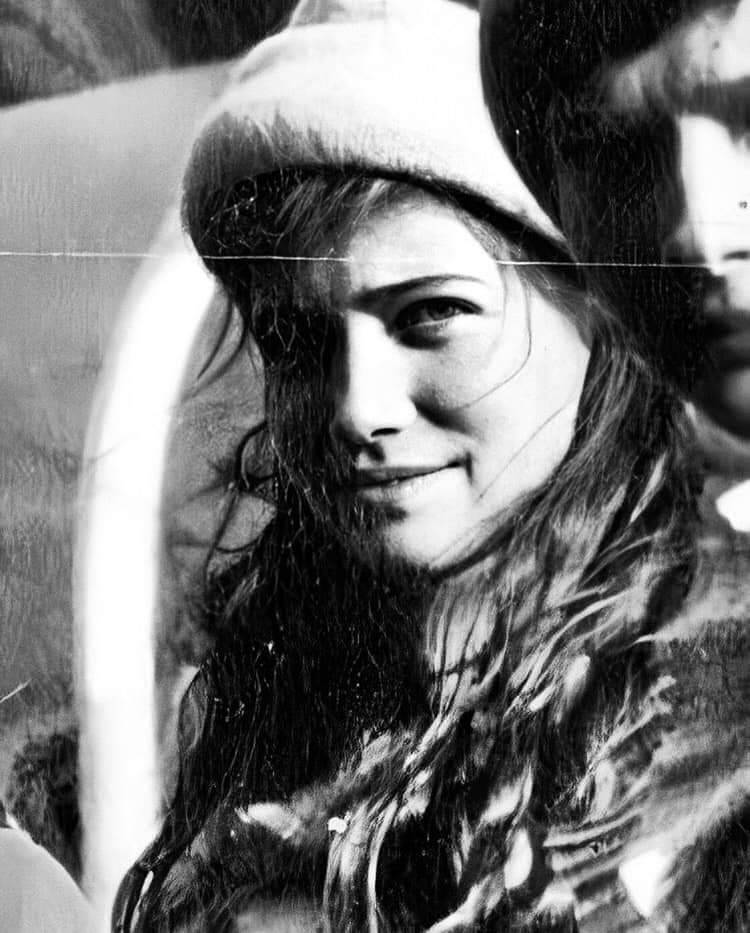

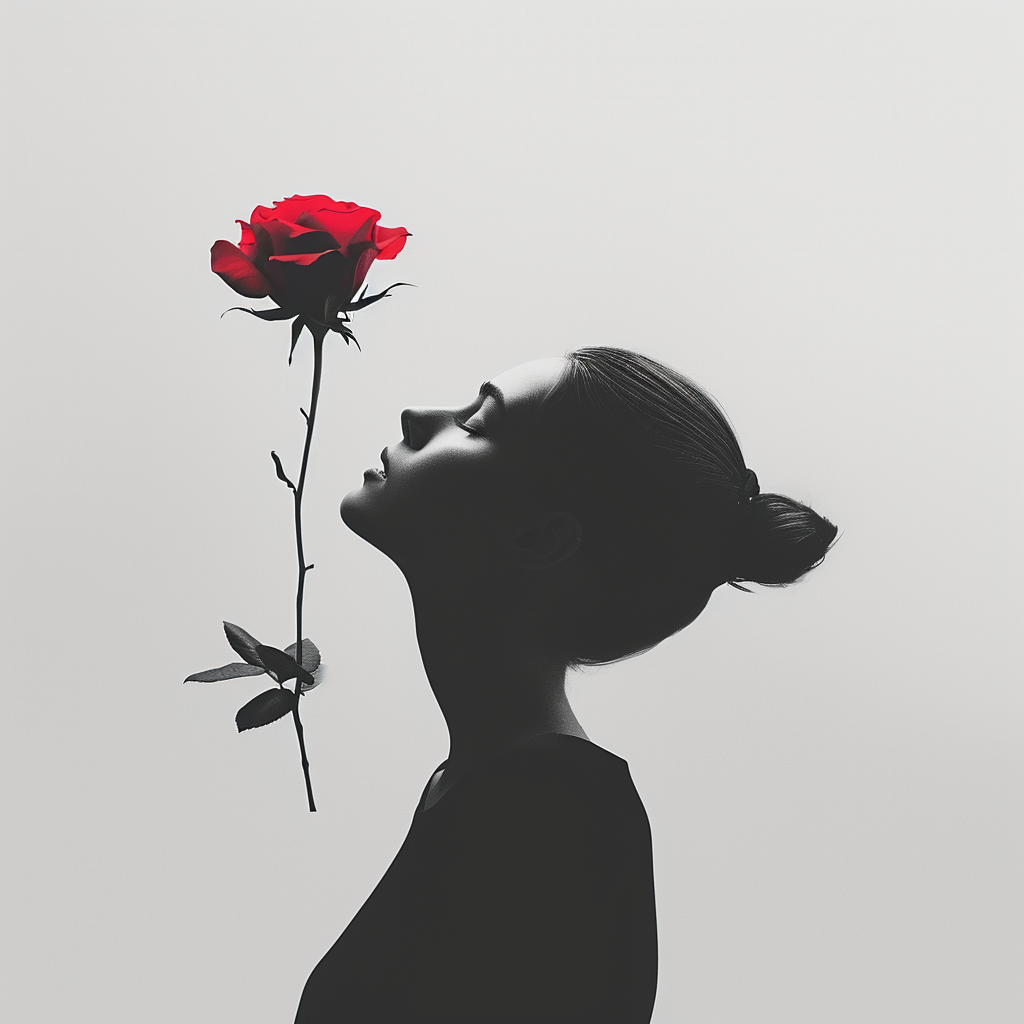










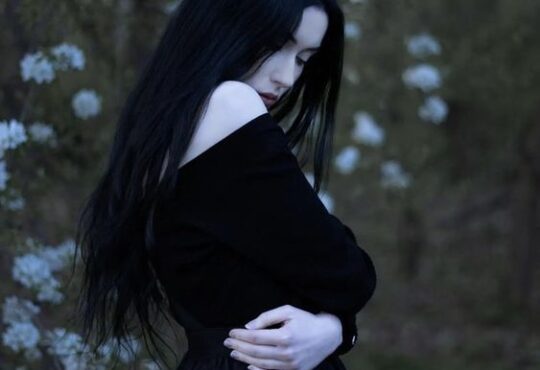


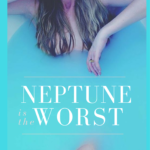
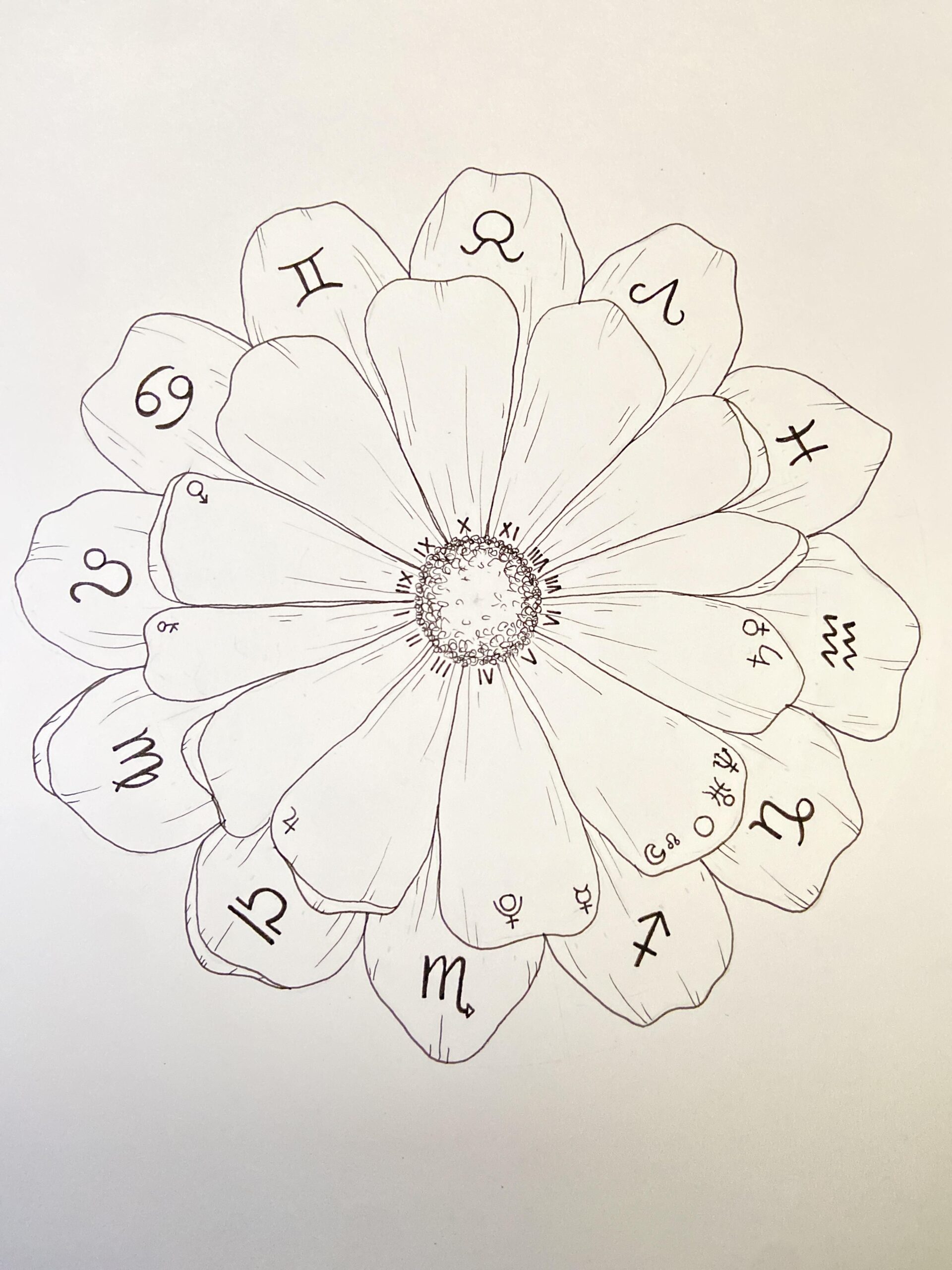 The Difference: Progressions Vs Transits
The Difference: Progressions Vs Transits
 The Twin Journeys of Saturn’s Returns
The Twin Journeys of Saturn’s Returns
 Uranus Transits the 6th House
Uranus Transits the 6th House
 Pluto in the 8th House: Secrets of the Soul
Pluto in the 8th House: Secrets of the Soul
 Moon Conjunct Pluto Synastry
Moon Conjunct Pluto Synastry
 Mercury Square Pluto Natal Aspect
Mercury Square Pluto Natal Aspect
 Saturn Conjunct Pluto Synastry
Saturn Conjunct Pluto Synastry
 Venus Opposite Jupiter: This Doesn’t Describe Me at All!
Venus Opposite Jupiter: This Doesn’t Describe Me at All!
 Sun Square Uranus Natal Aspect
Sun Square Uranus Natal Aspect
 Venus in the 5th House
Venus in the 5th House
 Pluto in the 4th House: You’ll Undergo a Personal Transformation at Home
Pluto in the 4th House: You’ll Undergo a Personal Transformation at Home
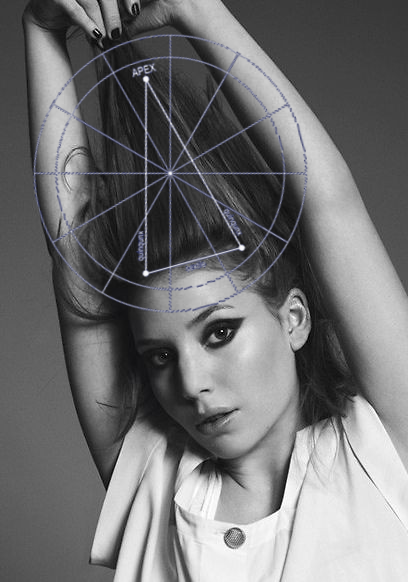 The Yod Aspect Pattern: The Mystical Power of the “Finger of Fate”
The Yod Aspect Pattern: The Mystical Power of the “Finger of Fate”
 Sun Trine Neptune Natal Aspect: When Imagination Takes the Lead
Sun Trine Neptune Natal Aspect: When Imagination Takes the Lead
 Sun Square Pluto Synastry: You’ve Got That Power Over Me
Sun Square Pluto Synastry: You’ve Got That Power Over Me
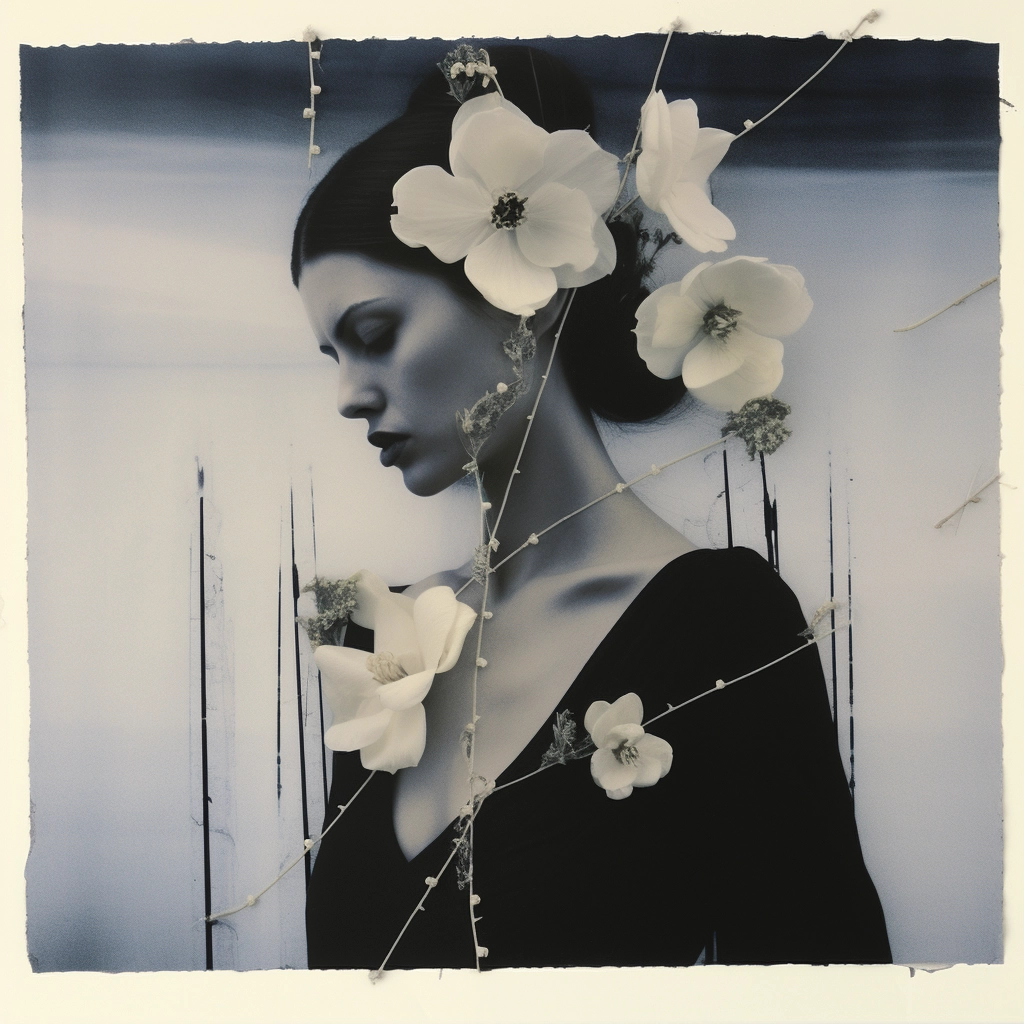 Pluto in Libra in the 2nd House: Lessons on Self-Worth and Financial Independence
Pluto in Libra in the 2nd House: Lessons on Self-Worth and Financial Independence
 Venus Conjunct Pluto: The Enchantress of Obsession and Doom
Venus Conjunct Pluto: The Enchantress of Obsession and Doom
 Sun Quincunx Moon Natal Aspect: Is There a Nagging Discontent?
Sun Quincunx Moon Natal Aspect: Is There a Nagging Discontent?
 Sun Conjunct Neptune Natal Aspect
Sun Conjunct Neptune Natal Aspect
 Mercury Trine Jupiter Synastry
Mercury Trine Jupiter Synastry
 Pluto in the 10th House
Pluto in the 10th House